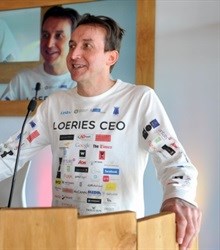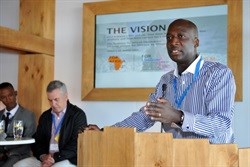Loeries 2014: Unilever leads the shift from the African opportunity to the African challenge

CEO of the Loerie Awards, Andrew Human introduced speakers Peter Cowan, Chairman of Unilever South Africa and Yaw Nsarkoh, MD: Unilever Nigeria. Explaining why Unilever is the ideal partner for the Loeries, and in particular the Unilever Ubuntu Award for Sustainable Marketing, Human said, "One of the key things with the Ubuntu Award that we are trying to reinforce is the idea almost behind a selfish behaviour that does good." So the question is: "How do you integrate doing good into your basic business values?" And furthermore: "Why would any brand be doing anything that isn't beneficial for us as a community and a country?"
He made an important point: "It's not about charity. You should make money and you should be successful, but while you're doing that, you should be adding value."
Cowan reiterated that Unilever's Bright Future initiative is not a CSI project. Rather, it's about integrating doing good into your business model, and thereby solving real problems in the community and impacting lives in a real way.
A "demographic dividend"

Nsarkoh said that the focus has been on the African opportunity, not the African challenge.
"If I look across Africa, we talk about a demographic dividend. As positive, as an opportunity. But the growth has not become more inclusive in Africa." So he proposes "creating opportunities for people that would otherwise be excluded from the ecosystem we're trying to build."
He used Nigeria as an example: "Inequality is a major issue. The richest Nigerian is richer than any British citizen on the earth and yet you have 130-million people living in poverty. Society needs to have a conversation about what we're going to do to make growth more inclusive. What are the solutions that together as a society we can put in place?"
And on a global level, "The net worth of the top 85 people in the world is more than the bottom 3.5-billion. One-billion people go to bed hungry every night, and yet in the food chain of the middle class, we throw away 40% of our food. The top one-billion of the world account for 72% of consumption, the bottom one million account for 1%. So you have a world that is simply not sustainable.
"There's a growing middle class; there's a poor community. I think that's what the African challenge is."
Business has a role to play by leveraging the talents and resources available to ensure unprejudiced distribution. "And of course, the creative endeavour is the one that can be used the most to engage with society - the creative world is key."






















